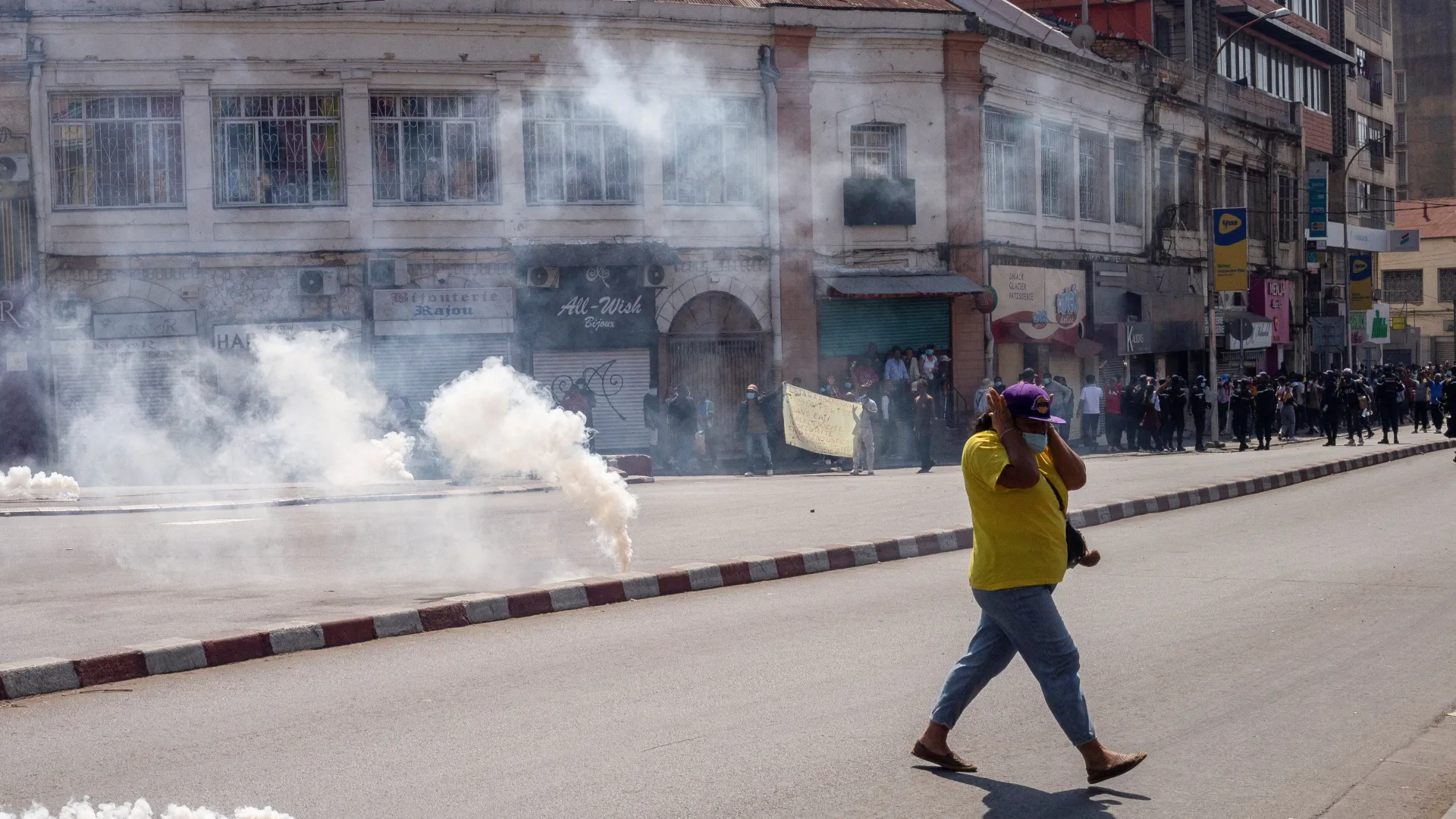
Madagascar erupted in chaos Thursday as protests over chronic water and electricity outages in Antananarivo descended into looting and arson. Police fired tear gas and rubber bullets at demonstrators, who defied a government ban and attempted to breach barricades in the Ambohijatovo district.
Crowds waved banners demanding basic rights, lamenting long power cuts and daily hardships, calling for an end to persistent governmental neglect. Some protesters displayed a straw-hatted skull flag from the anime “One Piece,” now a symbol of youth-led anti-establishment movements worldwide.
Hooded anti-riot police patrolled the streets in white 4x4s, dispersing the crowd, while at least three demonstrators were detained during morning clashes. By midday, protesters set fire to a senator’s home, which firefighters controlled amid stones hurled by the angry crowd, escalating the unrest.
Homes of two additional lawmakers were later targeted, while banks and stores suffered looting and arson as chaos continued into nightfall. A curfew was imposed overnight until 5:00 am Friday, and schools in the capital were ordered closed to prevent further disruptions.
Many citizens blame corruption, mismanagement, and opaque governance for the crisis, describing daily life without reliable electricity as increasingly unbearable. The protest drew mainly young people mobilised through social media, with no visible participation from political opposition figures in the capital.
President Andry Rajoelina, in power since 2009 and re-elected last year amid a largely boycotted vote, faces mounting criticism over stagnant economic conditions. Madagascar remains one of the world’s poorest nations, with the World Bank reporting 75 percent of its 30 million population living below the poverty line.
Residents describe enduring 12-hour daily power cuts, paying taxes and fulfilling obligations without basic utilities, fueling frustration that erupted violently Thursday. Observers warn that persistent mismanagement and social inequality risk deeper unrest if authorities fail to address the grievances underlying the capital’s protests.
